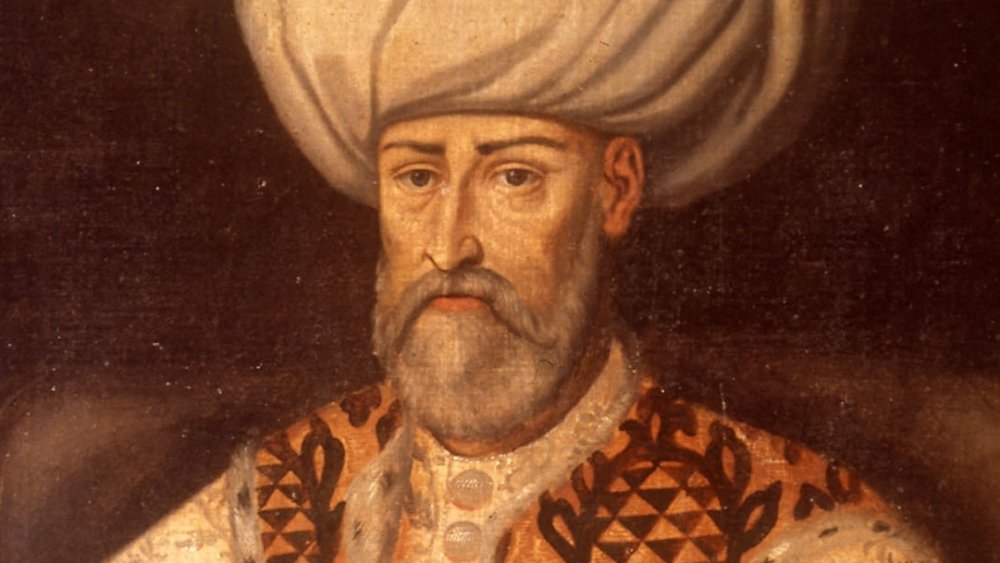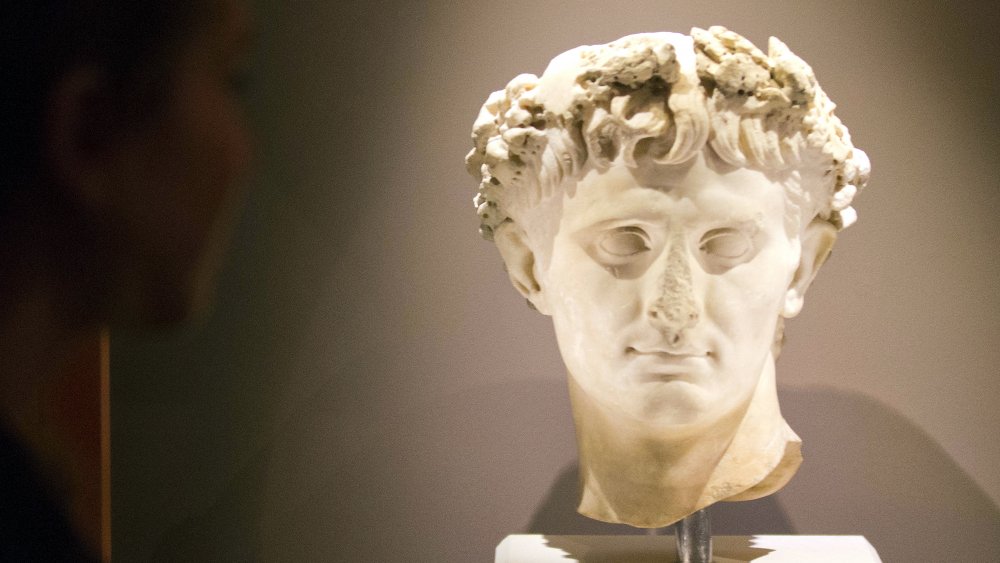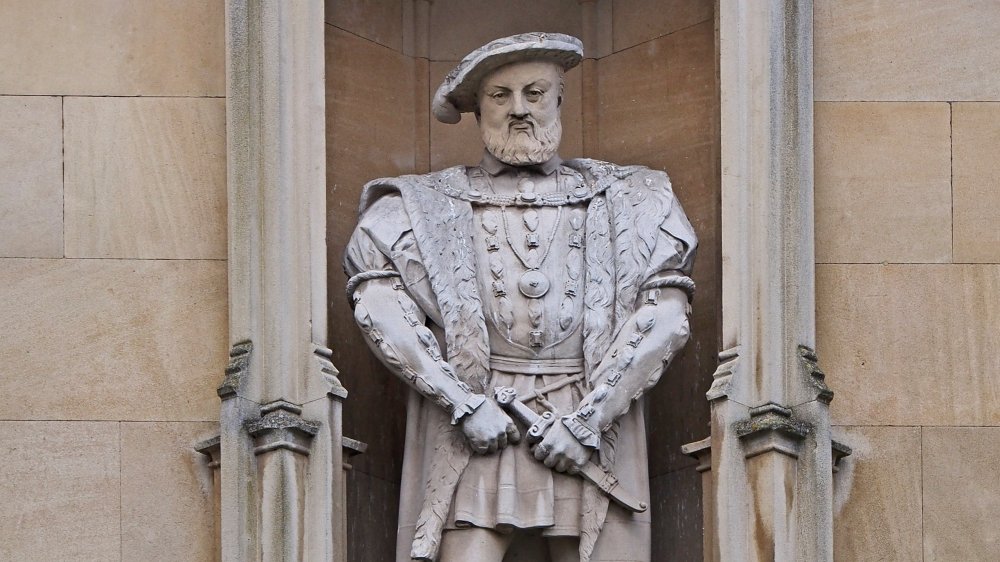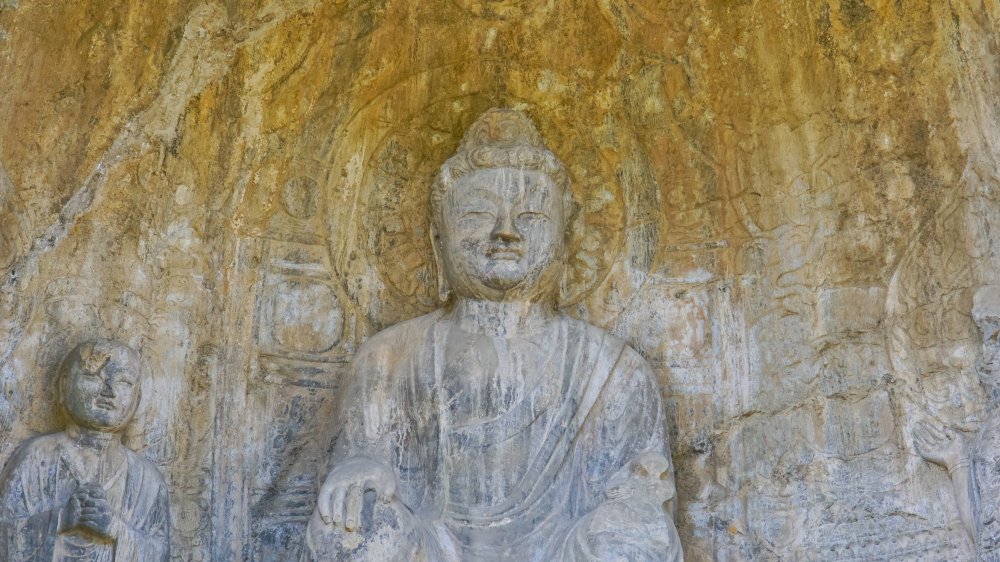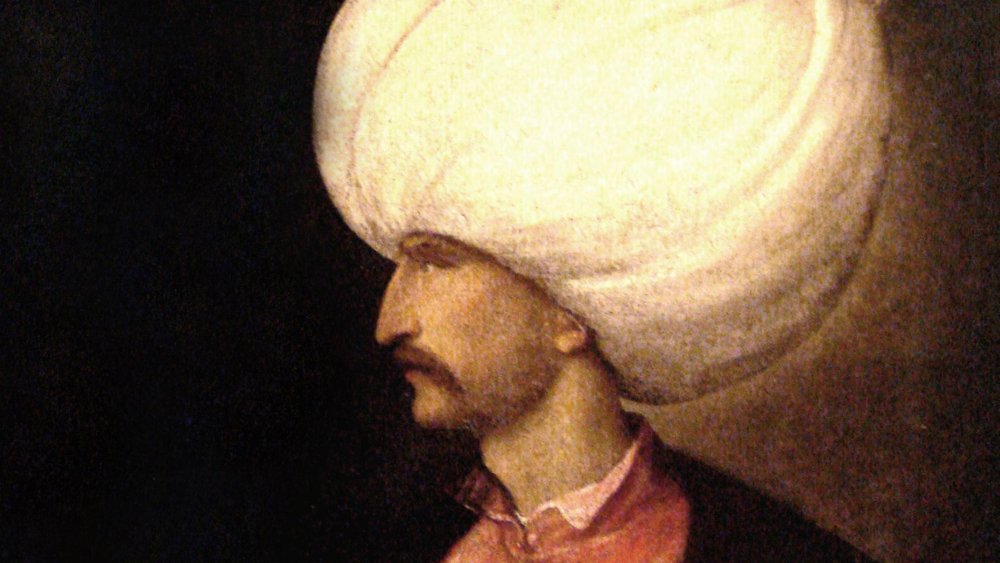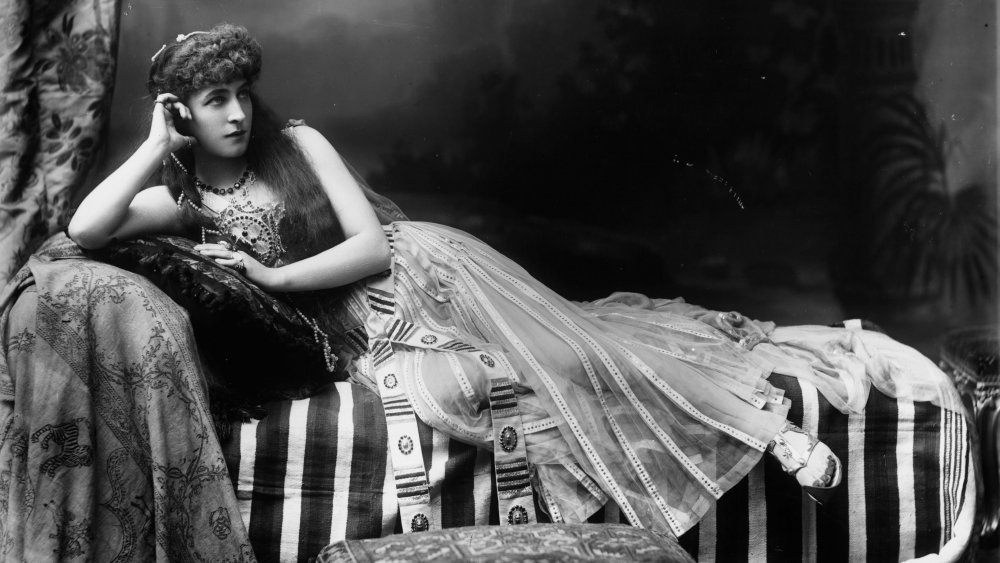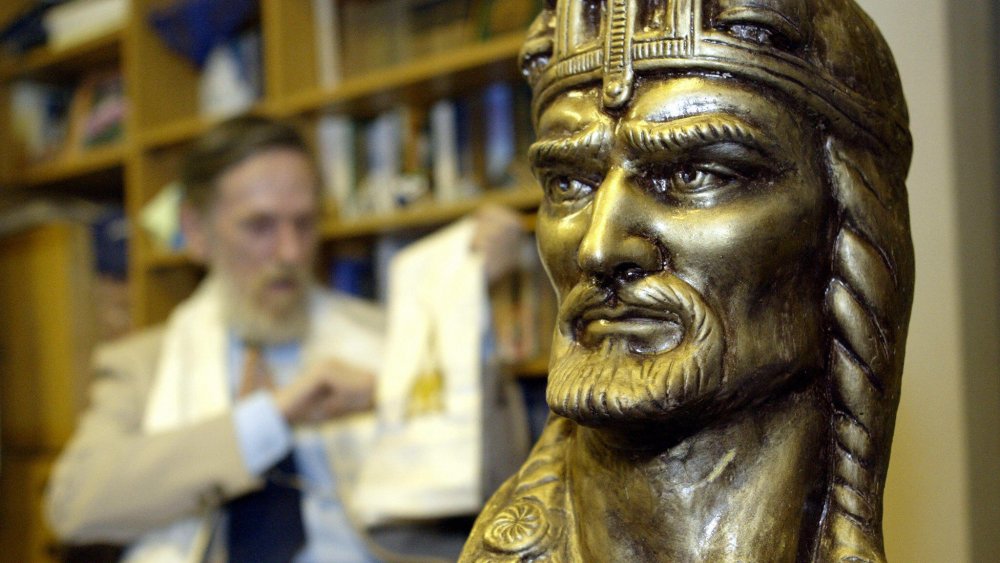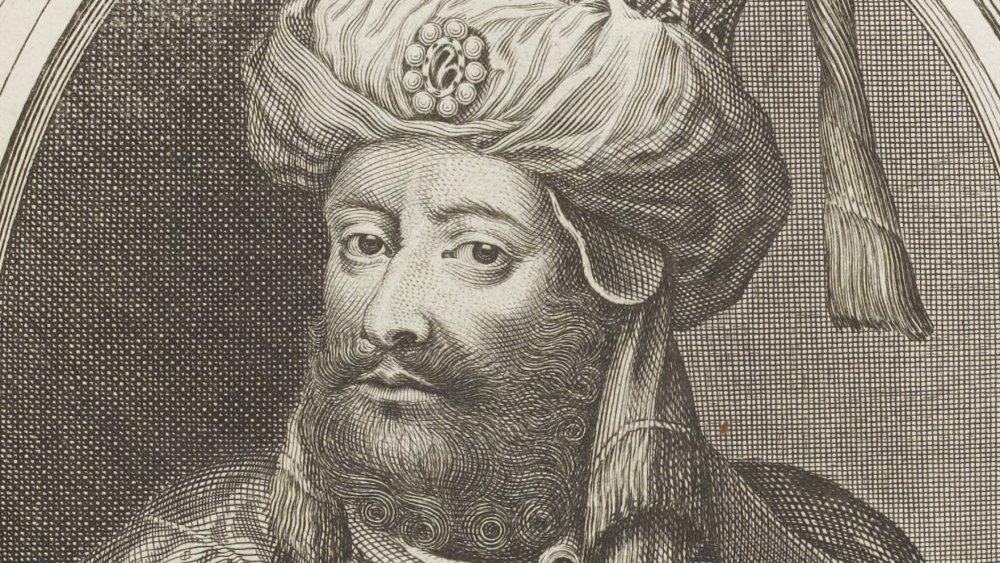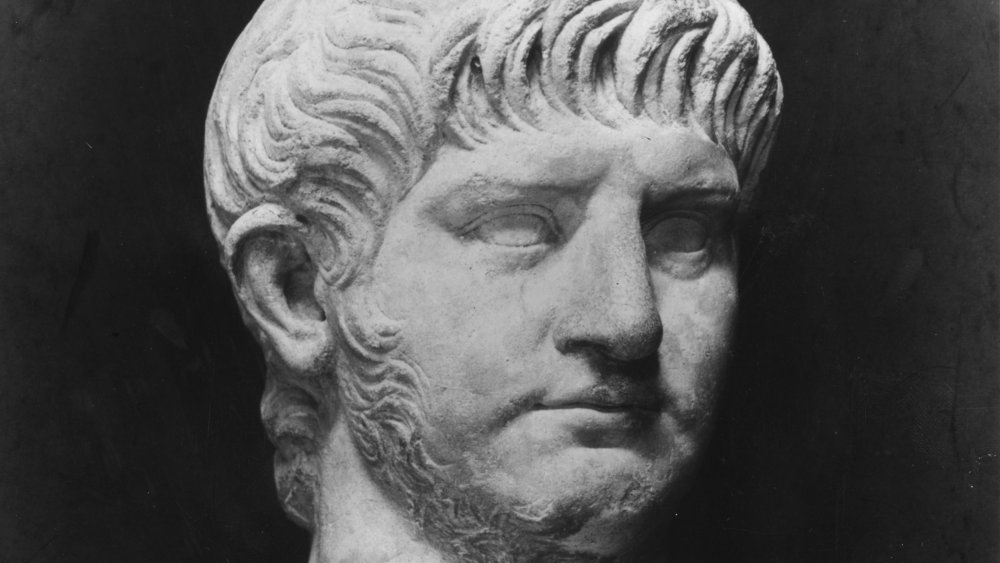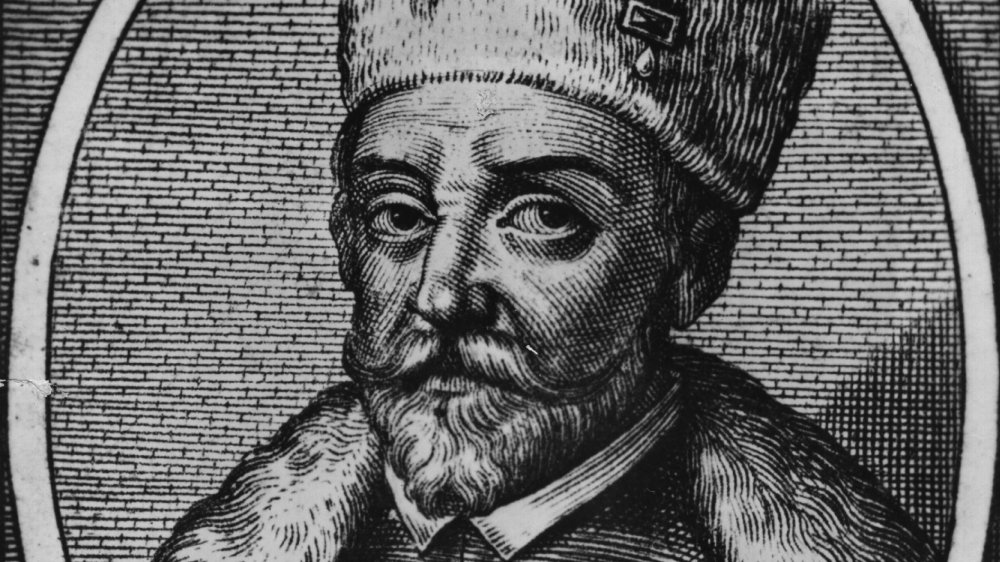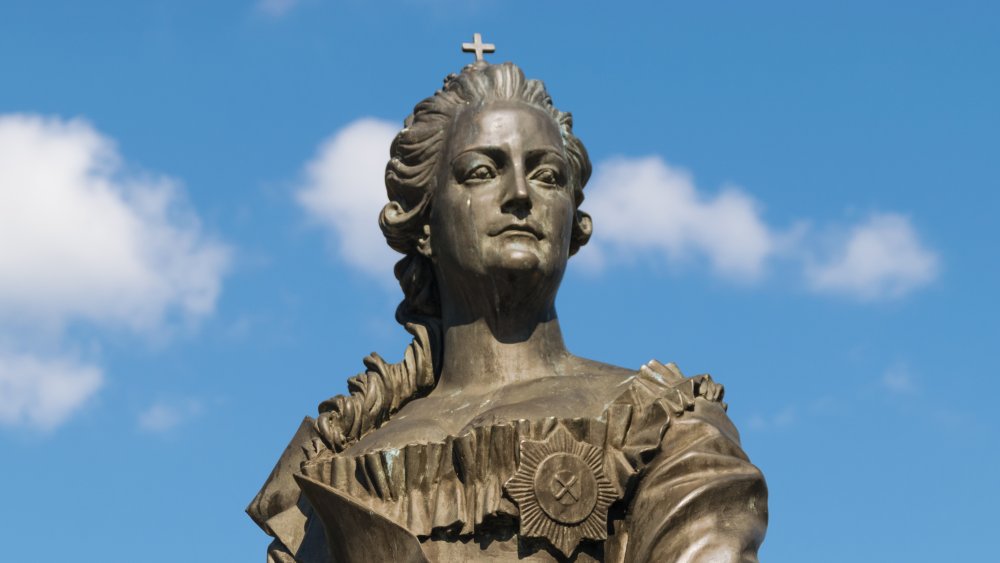Rulers Through History Who Executed Family Members
History is full of kings, emperors, dictators, and so on who had no reservations about executing, well, pretty much anyone: political rivals, enemies, scapegoats, and sometimes people who were just in the wrong place at the wrong time. Some of these rulers have even been uncomfortably close to the present day.
But, traditionally speaking, family members are off-limits. Even some of the cruelest rulers of all time made exceptions for family. They would imprison or exile them, but surprisingly few rulers have had it in them to go full Game of Thrones on the people who had been around them since they were children.
There are a few, though. Usually it's because they really were just that cutthroat in their quest for power, but sometimes it was because their family member was, honestly, pretty awful and causing a lot of problems. Not saying you should have your family killed if they bug you, but these people sure did.
King Herod the Great wasn't so great
You might have heard of King Herod the Great thanks to the Bible. Herod, along with his family, supported the Romans when they came and took over his familial land. This paid off so well, Herod became pals with some big names in Rome, like Octavian and Mark Antony, who eventually made him the King of Judea, working on behalf of Rome and its interests, according to LiveScience.
Because supporting the Roman Empire was not a popular position with the Jewish people, Herod was unpopular by proxy. As a result, he married Mariamme, the granddaughter of a former Judean High Priest, with whom he had two sons, Alexander and Aristobulus, in hopes the Judeans would be more accepting of him. This didn't pan out, however, and the Judeans still didn't trust him or Rome, leading Herod to enact more draconian laws and become paranoid. Eventually, he became convinced his family was plotting against him and had Mariamme executed for adultery (keep in mind she was just one of his 10 wives), then Alexander, Aristobulus, and a third son from another wife, Antipater II.
It's possible Herod killed other family members as well, and it is said in the Bible he had every infant in Bethlehem and the surrounding area killed, though historians are skeptical this actually happened. In fact, they think this was probably a dramatization of how he killed his own sons.
Henry VIII didn't just kill his wives
When you think of historical rulers who put a lot of people to death, you likely think of Henry VIII, who famously beheaded his second and fifth wives, Anne Boleyn and Catherine Howard, for adultery. While the charges may or may not have been true, these were just two of a very long list of people Henry VIII killed for spurious reasons, according to Tudors Dynasty.
What's lesser-known is Henry VIII spent a lot of time killing off cousins and other relatives for fear they might overthrow him. He was especially focused on the De la Pole family, a closely-related familial line with several members with good claims to the throne. Over several decades, Henry VIII suspected them of trying to overthrow him and executed many of them.
Remember, Henry VIII's big thing was he wanted a male heir, and when he didn't get one, he changed the very face of Christianity by splitting from the Catholic Church just to get a divorce. He wanted to ensure his bloodline stayed on the throne that badly. So anyone in England that could potentially be a threat to his rule became an instant target. In the end, this did kind of pay off, in a morbid way. His 9-year-old son, Edward VI, succeeded him upon his death in 1547, according to History.
The only female ruler of China killed her kids to stay in power
In Chinese history, there has been only one ruler who was a woman. Wu Zetian started as a concubine of the Tang Dynasty Emperor Taizong. But after Taizong was succeeded by Emperor Gaozong, Wu did something no other concubine had done before — she became the concubine of a second emperor as well, and he later married her in 652, making her Empress.
How she managed to oust Gaozong's previous Empress, Wang, is a story unto itself. Gaozong fathered a child with Wu. When the baby was a week old, Wang visited Wu and held the baby. Shortly after Wang left, the baby was dead, and Wu accused Wang of killing it. Gaozong believed her, and Wang was executed. However, some historians think it's likely Wu killed the child herself to get rid of Wang in order to become Empress, according to History Collection.
Later, Gaozong had a stroke and was unable to rule, so Wu ruled in his stead. Wu apparently gained a taste for power, because she quickly eliminated her two oldest sons, who each had a chance at inheriting the throne from Gaozong. Her third son, Li Hong, was briefly Emperor when Gaozong died, but Wu didn't care for his rule, so she had him put under house arrest and ran the Empire herself. She ruled for 23 years before losing the throne and passing away in her seventies.
Suleiman the Magnificent casually executed his sons
Suleiman, the Sultan of the Ottoman Empire, had a pretty disturbing relationship with his kids. Like other sultans, Suleiman had a harem of concubines and fathered children with more than one of them. Suleiman did something very taboo, though, when around 1533 he married Roxelana, one of his harem. This was something that simply was not done, but who's going to tell the Sultan no?
This did create an issue, though, because Roxelana is believed to have wanted one of her sons to take the throne after Suleiman's death instead of Mustafa, the oldest of the Sultan's children born to a consort named Mahidevran. By Ottoman tradition, the heir to the throne would kill all of his brothers to ensure his claim. While it's not 100 percent confirmed, there is some evidence Roxelana convinced the Sultan Mustafa was plotting against him, and the Sultan had him executed, according to Ozy. It's also possible the Sultan did this without Roxelana's urging, however.
Many years later, when it was time for one of Suleiman's sons (by Roxelana, of course) to take over the throne, two sons in particular had it out, Selim and Bayezid, warring over their father's throne. Suleiman chose Selim over Bayezid, and when Bayezid was defeated, the two of them had him executed so Selim could take over unimpeded, according to Suleiman the Magnificent.
Cleopatra did not want her family to help her
Cleopatra VII, simply known as Cleopatra in the modern day, became Queen of Egypt after her father, Ptolemy XII died. However, her father also left a will demanding Cleopatra marry and co-rule with her 11-year-old younger brother, Ptolemy XIII. While that sounds pretty creepy, it was normal for Egyptian rulers of the time to marry their siblings to consolidate power.
Cleopatra wasn't happy with this situation and tried to run things herself, which led Ptolemy XIII to attempt to eliminate her so he could rule alone. He was backed up in this endeavor by their sister, Arsinoe, and Cleopatra sought help from none other than Julius Caesar, according to Smithsonian Magazine. In the end, a minor civil war broke out, which ended with Ptolemy XIII dead. At Caesar's request and according to Egyptian tradition, Arsinoe was exiled and Cleopatra then married her youngest brother, Ptolemy XIV, instead.
Cleopatra grudgingly went along with this, as she didn't want to anger Caesar, and was once again stuck as co-ruler with one of her brothers. After Caesar's assassination, though, Cleopatra saw an opportunity. She had Ptolemy XIV and Arsinoe executed, leaving her with no siblings and thus allowed to rule completely alone as Pharaoh. While Rome wasn't happy Cleopatra went against Caesar's wishes, she allied herself with Roman general Mark Anthony to prevent the empire from retaliating.
Attila the Hun's brother mysteriously disappeared
While Attila the Hun is known for being one of the most feared leaders of the ancient world, what many people never hear about is his brother, Bleda. When Rugila, Attila's childless uncle, died, his last wishes were for his young nephews, Attila and Bleda, to co-rule the Hunnish Empire. Initially, this seems to have gone well. Attila and Bleda worked together to grow their empire and fend off attacks from the Roman Empire.
However, after about 445 AD, Bleda is no longer mentioned in Hunnish history, only Attila. It's almost like Bleda never existed at all. Records from this time are scarce today, so if we didn't have older records that did mention him, it's possible we might have never known about him at all. There's nothing about him dying or leaving or being abducted by aliens. They just stop talking about him altogether, according to LiveScience.
Priscus, a Roman writer who worked as a diplomat to the Huns, did mention something after he ran across one of Bleda's widows. He claims she told him Attila assassinated Bleda to seize his territory, according to writer Charles W. King. We don't know exactly what happened, though some sources suggest Bleda had a hunting accident or got into a fatal argument with Attila. It's also possible those were cover stories told with a wink and a nod. Either way, Bleda was effectively erased.
Aurangzeb and his brothers were not bros
Modern-day India is a single, unified country, but at various points throughout history, it was made up of several different kingdoms and empires. One of these was the Mughal Empire, made up of parts of present-day India, Afghanistan, Kashmir, and several other countries and regions. In the 17th century, the Empire was overseen by Shah Jahan, who had four sons with his wife Mumtaz Mahal. (The Taj Mahal was built for and named after the Shah's wife.)
As the Shah aged, his sons began to fight over his throne. Dara, the oldest, was most favored by the Shah, followed by Shuja, Aurangzeb, and Murad, the youngest. Aurangzeb convinced Murad that Dara and Shuja would be poor leaders, but if the two of them were to team up against their older brothers, they could put Murad on the throne, according to ThoughtCo. Aurangzeb claimed to have no interest in being Emperor himself.
Aurangzeb and Murad fought Dara and exiled him, then battled and executed Shuja. Dara returned, but this time Aurangzeb and Murad had him killed. And finally, with his older brothers out of the way, Aurangzeb graciously stepped aside and allowed Murad to take the throne. Just kidding, he had Murad executed too and took the throne himself after having his father placed under house arrest. He was presumably not invited to family reunions afterward, although he'd be the only one there anyway.
Agrippina the Younger taught Nero everything he knew
Julia Agrippina was born into Roman royalty. Sister of Emperor Caligula, she was very familiar with Roman politics. She bore a son, Nero, with her first husband, who later died. She was then married a second time, but that husband also died, apparently of poison.
Finally, she was wed to Claudius, who also happened to be her uncle. Gross. Claudius had become Emperor after Caligula's death, but then he was poisoned, too. What a coincidence! Of course, not before Agrippina convinced him to adopt Nero, making him Claudius' successor. While Agrippina was widely believed to have been involved in the death of Claudius, it was never proven, and so a teenage Nero became the Emperor of Rome in 54 AD, according to ThoughtCo.
This ended up backfiring, however. While Agrippina might have assumed she'd be able to control her son and gain a greater share of power in Rome, things didn't actually pan out this way. Nero quickly grew annoyed with her and had her exiled. Agrippina then began to campaign against Nero, claiming her stepson from Claudius, Brittanicus, was the rightful emperor. Brittanicus then died under mysterious circumstances and Nero plotted to have his mother die in a boat rigged to sink, but she survived by swimming to shore. Nero then gave up trying to be subtle and had his mother executed, leaving him unopposed.
Edward IV had a tough relationship with his little brother
As many people with younger siblings can attest, they can often be quite a pain. This seems to have been the case with the tumultuous relationship between England's King Edward IV and his younger brother, George, Duke of Clarence. While George and Edward worked together to depose King Henry VI during the War of Roses, they didn't stay on the same side for very long, according to The Crown Chronicles.
Not long after Edward became king in 1461, George linked up with Richard Neville, Earl of Warwick, their uncle who had also helped remove King Henry VI from power. Richard intended to remove Edward from the throne and take it for himself, which Edward's brother seems to have shrugged at and agreed to help with. However, after this failed and Richard allied himself with Henry VI's wife, Margaret of Anjou instead, George returned to his brother's side and they successfully stopped the plot.
Even this didn't last long, however, and shortly after, George was discovered to be plotting against Edward once again. This time, Edward had enough, locked George in the Tower of London, and had him executed via unspecified means, though legend has it George was drowned in a tub of his favorite wine. While it's a sad ending for George, it's also kind of hard not to identify with Edward if you've ever had a really annoying little brother.
Richard III was pretty much how Shakespeare said
Speaking of Edward IV and the Tower of London, he and George had another brother, also named Richard (it was a family name). When Edward IV passed away, he left an heir, Edward V, as well as another son, Richard of Shrewsbury (again, family name). The problem was Edward V, the elder of the two, was only 12-years-old, so their uncle Richard was named Lord Protector of the boys, according to History Extra.
The reign of Edward V didn't last long, though. Soon, questions came up about Edward IV's marriage and how he had potentially practiced bigamy, which technically invalidated Edward V's claim to the throne. Richard was crowned as King Richard III instead. While Edward V still potentially had a claim to the throne, Richard III had his nephews locked up in the Tower of London soon after his coronation, and they were never heard from again.
It's never been proven Richard III had the boys killed (or if he leaked Edward IV's bigamy), but he is a very likely suspect. There are no records of what happened to the boys. The Tower of London wasn't all creepy torture chambers, though, so it's possible the boys survived there. Years later, Perkin Warbeck claimed to have been Richard of Shrewsbury. Most historians believe Richard III intentionally had his nephew removed from the throne and ordered both boys killed, however.
Ivan the Terrible did a terrible thing
Ivan the Terrible wasn't called "Terrible" for nothing. Although the title means terrible more in the sense of intimidating, Ivan did also sow a lot of terror in his time as Tsar of Russia. He's well known for mercilessly killing Russia's enemies, his own political rivals, and basically anyone who stood in his way. While Ivan the Terrible never officially executed any family members, he did frequently have blowout arguments with his son and heir, Ivan Ivanovich, who was just as outspoken and short-tempered as his father, according to Ivan the Terrible.
Ivan the Terrible was reportedly very proud of the wealth he had accumulated as Tsar, and would often bring this up during arguments. On one particular night in 1581, though, Ivan Ivanovich retorted he didn't care about gold and jewels, but instead prized courage and valor over material goods. The Tsar took this as an insult and flew into a rage.
He took a heavy, iron staff he was holding and struck his son in the skull, causing Ivan Ivanovich to crumple to the ground, bleeding from his temple. Ivan the Terrible was immediately remorseful, weeping and holding his son's body. Ivan Ivanovich died three days later. While it wasn't an execution so much as second-degree murder, it had the added effect of ending Ivan's line, as his other son, Fyodr, inherited the throne but died childless a few years later.
Catherine the Great was involved in some mysterious deaths
When Catherine the Great's husband became Peter III, Tsar of Russia, in 1762, things were looking good for her. Within months, however, Peter III was wildly unpopular, and that's when Catherine is alleged to have met with members of Russian aristocracy. It's not known who reached out to whom or who initially suggested removing Peter III from the throne. Soon after, though, Peter III was deposed and exiled, according to Esquire. One week later, he was assassinated by the younger brother of Catherine's lover. Catherine claimed no involvement, and it's not known if she even knew Peter would die or if she just intended for him to be exiled.
But even Catherine's son Paul openly suspected his mother was involved in his father's death. Paul also claimed his mother had plotted to have him killed as well, to prevent him from inheriting the throne after his father's demise. Instead, Catherine remained in charge as Empress of Russia. She is known to have actively worked to secure a different heir rather than have Paul succeed her, but she died before she could enact this.
Paul did become Tsar after Catherine's death, but not for long. Within just a few years, Paul was also assassinated, according to Owlcation. While there's no proof whatsoever, rumors have persisted for centuries Catherine and her allies arranged for Paul's assassination before she died.
